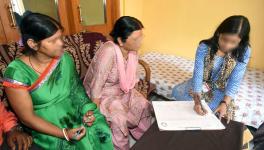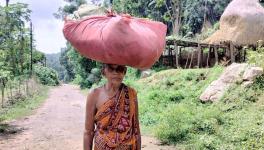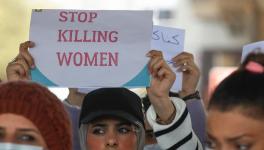The 'Dangerous' Feminists Behind a Lebanese Media Outlet
The Khateera media platform is a place for discussing potentially taboo subjects in an open and lighthearted way
"What is it that scares our societies the most — but we think about it every 40 minutes?," presenter Maria Elayan asks at the beginning of the video. There's a drum roll, then the answer: "Sex. You're surprised, right?"
The character that Elayan plays in the video, who is also called Maria, is open and outspoken. The character is a woman from the Middle East and North African region who is courageous, has her own opinions and is not afraid to go her own way.
"Why are our societies so afraid of desire? Especially women's desire? And what is desire?" Maria, the presenter character, continues. "It is the feeling of wanting to have sex either with someone you love, you desire, or with yourself."
Surrounded by books in a colorfully decorated living room, Maria then offers a range of statistics and information all concerned with the topic of female sexual desire. She also compares them to research on male sexual desire.
This YouTube video is part of the second series of "Smatouha Minni" — translated into English, it means "you heard it from me" — produced by Khateera, a women-led media platform based in the Lebanese capital, Beirut.
The name itself is the feminine form of "dangerous" in Arabic. It was chosen not just because it can be understood throughout the region, but because it is also at the heart of what this media company is doing.
"Women like to be called 'khateera,'" Amanda Abou Abdallah, Khateera's founder, says. "It means all of these things: It means you're strong, it means you own your own decisions. You're more aware of the world. You're more aware of your rights. You're more aware of your own value."
Like talking with friends
This is what the Khateera team stands for and it is also what they're all about. The women wanted to establish a platform from which they could present facts, comedy and conversation that would strike a chord with as many people in the region as possible, and where they could also address sensitive topics, the kind that push against social taboos.
The producers' vison for Khateera is for it to be a safe space where one can discuss subjects like feminism, the patriarchy and other societal issues in a more light hearted way, as if you were talking with friends. They avoid the use of complicated terms, avoid any arrogant explanations, use easy-to-understand language and always add a dash of humor and even a little sarcasm, while simultaneously conveying the facts.
Abou Abdallah came up with the concept for Khateera before the COVID-19 pandemic struck, and the debut episode of "Smatouha Minni" went online, on Instagram and YouTube, during the first year of the pandemic.
The team has grown since then, with nine women now working on Khateera — three of them full-time. The show is supported financially by various nongovernmental organizations and Abou Abdallah acts as the co-chief executive officer along with her colleague, Rana Askoul.
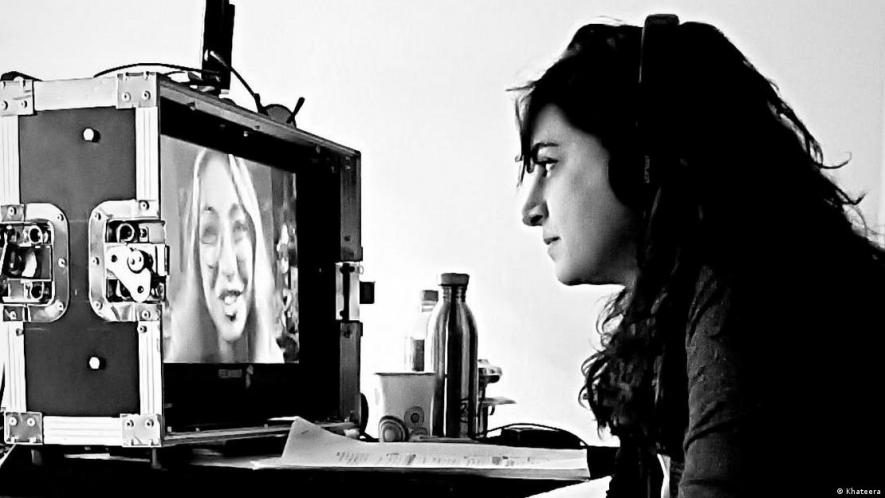
Amanda Abou Abdallah has also directed documentaries for the likes of Vice
Abou Abdallah recalls seeing a lot of misogyny in local comedy and she decided to fight back with the same tools. "And this is where the idea came from," says the woman who both produces and directs Khateera videos. "Let's use sarcasm as a delivery [method] and let's have a sassy woman say it," she explains.
This is how actor and co-writer Elayan ended up portraying up to 20 different characters in Khateera-produced videos. One segment, she will be Maria the presenter, but the next, she might also be an older Arab woman or an Arab man with a moustache. She represents the kinds of archetypal characters that many in the audience recognize from their own social circles or even their families.
The show's success indicates just how well the characters hit the mark. The first season of "Smatouha Minni" had over 26 million views from across the region on various platforms. After just a few weeks, the second season, which only launched recently, already has 10.3 million views on various platforms.
The show's 1.5 million followers, a number which only continues to rise, come mostly from Saudi Arabia, Jordan, Libya, Iraq and Egypt, with 75% of them females aged between 15 and 24.
A distinctly Arabic discussion
The "Smatouha Minni" series is probably the group's most popular product, with its approach to a wide range of sensitive topics, everything from women's health and menstruation to access to the labor market. The show wants to expose the various prejudices and stereotypes that prevent women in the region from equality.
Khateera offers more than just this series though. On the group's website, the outlet also publishes writing from authors throughout the Middle East and North Africa who deal with topics like sexual harassment, discrimination and gender stereotyping in their texts.
Presenter and actor Elayan is 27 years old and has a Palestinian-Jordanian background. Abou Abdallah, 34, comes from Lebanon. Both of them say that they've wanted to see a show like "Smatouha Minni" ever since they were young.
"When I was a child, I would have liked to watch something like this in Arabic, not just in the Western content, which I don't always relate to," Abou Abdallah told DW. "It's not always the same context, even though the gender issue is a global one."
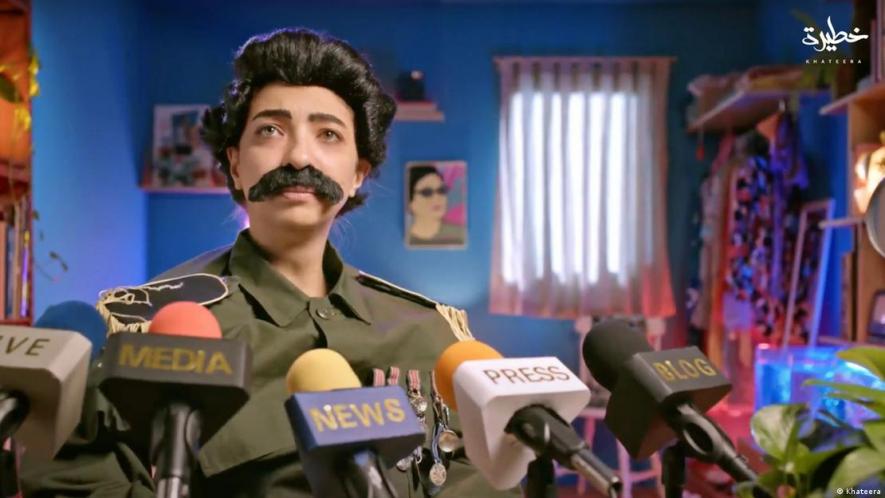
Actor Maria Elayan plays a wide number of roles in the "Smatouha Minni" series
This is why Khateera deliberately targets women in all Arabic-speaking zones.
"We have different problems from the West, but we have common problems in the Arab world," Abou Abdallah explains. "I'm sure if you listen to an Egyptian woman and a Jordanian woman and you get to the basis of their problems, they're kind of the same."
Elayan sees it similarly. "To me, the aim is to bring forward an Arab feminist narrative, to separate our feminism from Western feminism and to fill the knowledge gap in order to allow young Arab girls and women to live a more just life," she says of her goal of conveying a distinctly Arab kind of feminism. "Another aim is to show women and girls that they're not alone in their thoughts. So many women think the same exact things but lack the tools to say them, or [they] might in danger if they do. And that's where 'Smatouha Minni' comes in."
Working for media platform 'not risk free'
Topics for Khateera's videos come from everyday life but the producers also keep an eye on social media to check what subjects are being discussed online. The topics they choose hit a nerve with many young people in the region and according to an internal review, the feedback is overwhelmingly positive. A look into the various commentaries alongside their work confirms this.
Neither Elayan nor Abou Abdallah had expected that.
"Being the current face of Khateera comes with a lot of responsibility," Elayan says. "Mainly because we're producing content that is considered bold for the region and because we need to be very meticulous in how we deliver our messages."
Elayan is proud of what she's doing. "At the same time, I fully understand that it is not risk free," she adds.
Of course, there's also criticism. Sometimes their facts and figures are disputed. Other times they're accused of trying to drive a wedge between men and women. In fact, the two women argue, what they want is exactly the opposite.
In order to show that men can be allies in the fight for gender equality, there was occasionally a male host on the show during its first season — and also because gender stereotyping obviously also impacts males. The show actually also gets a lot of positive feedback from men, Abou Abdallah confirms.
This article was originally written in German.
Get the latest reports & analysis with people's perspective on Protests, movements & deep analytical videos, discussions of the current affairs in your Telegram app. Subscribe to NewsClick's Telegram channel & get Real-Time updates on stories, as they get published on our website.









